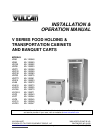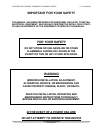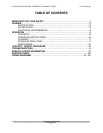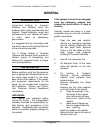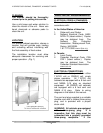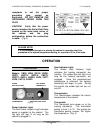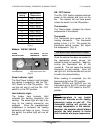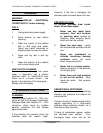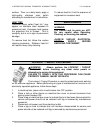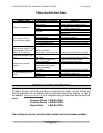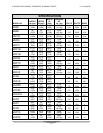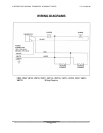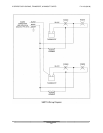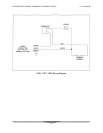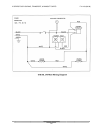
V SERIES FOOD HOLDING, TRANSPORT, & BANQUET CARTS F-41140 (09-09)
7
CLEANING
Always UNPLUG ELECTRICAL
POWER SUPPLY before cleaning.
WARNING:
DAILY:
1. Unplug electrical power supply.
2. Allow warmer to cool before
cleaning.
3. Clean the interior of the cabinet
with a mild soap and water.
Never use harsh chemicals or
abrasive pads to clean the cabinet.
4. Rinse and dry with a soft dry
cloth.
5. Clean the exterior of the cabinet
with a clean damp cloth.
For heavy-duty cleaning, use warm
water, a degreaser, and a plastic,
stainless steel, or Scotch-Brite pad.
Never rub in a circular motion -- rub
gently in the direction of the steel grain.
HEAVY-DUTY CLEANING:
Always rinse thoroughly.
STAINLESS STEEL CARE
Stainless Steel contains 70 – 80% iron,
which will rust if not properly maintained.
Stainless Steel also contains 12 – 30%
chromium, which forms an invisible
passive, protective film that shields
against corrosion.
CLEANING:
If the protective film remains intact, the
stainless steel will remain intact.
However, if the film is damaged, the
stainless steel can break down and rust.
To prevent stainless steel break-
down, follow these steps:
PREVENTIVE CARE:
1. Never use any metal tools,
scrapers, files, wire brushes,
or scouring pads (except for
stainless steel scouring pads,)
which will mar the surface.
2. Never use steel wool – which
will leave behind particles that will
rust.
3. Never use acid-based or
chloride containing cleaning
solutions – which will break
down the protective film.
4. Never rub in a circular motion.
Always rub gently in the direction
of the steel grain.
5. Never leave any food products
or salt on the surface. Many
foods are acidic. Salt contains
chloride.
Special stainless steel polishing
cleaners can preserve and restore the
protective film.
PRESERVING & RESTORING:
Preserve the life of stainless steel with a
regular application of a high-quality
stainless steel polishing cleaner, as a
final step to daily cleaning.
If signs of breakdown appear, restore
the stainless steel surface. First,
thoroughly clean, rinse, and dry the



